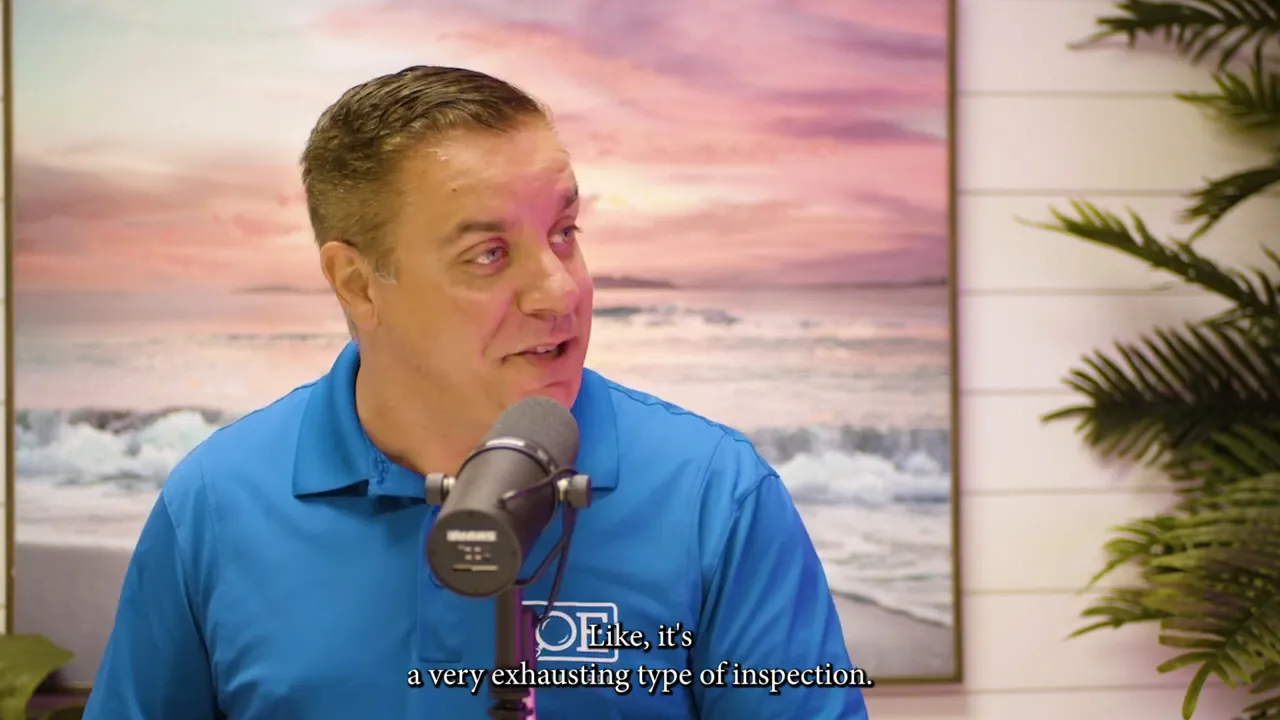Purchasing a home is a milestone, and a thorough approach to home inspections separates a smooth closing from unexpected headaches. Experienced agents and inspectors stress that a general inspection is the buyer’s best opportunity to understand what is truly inside the walls, above the ceiling, and under the roof. A single missed issue can turn into costly repairs later, so approaching home inspections with the right expectations pays off.

Why a Comprehensive Home Inspection Matters
When an inspection is done well, it becomes proof. A full-service inspection looks at the major systems and components of a home and reports what needs repair, replacement, or further evaluation. Buyers in regions with unique climate risks, such as Southwest Florida, benefit from inspectors who know the local environment and its specific concerns.
Home inspections typically include evaluation of:
- Heating, ventilation, and air conditioning systems
- Electrical panels, circuits, and safety devices
- Plumbing supply, drainage, and visible connections
- Roof, attic, and insulation conditions
- Doors, windows, and exterior envelope
- Garage operation and fire separation
- Kitchen and baths including fixtures and functional testing
- Pool equipment where applicable
- General interior and structural observations for obvious defects

Reputable inspectors will explain the scope before testing begins, putting buyers at ease by clearly stating what will be inspected that day. That transparency helps buyers decide which follow-up tests to order and how to prioritize repairs.
Specialty Tests that Complement General Home Inspections
Beyond the general inspection, specialty testing fills important blind spots. Two high-value add-ons are mold and indoor air quality testing. In humid climates, mold can become an unseen problem that affects health and property value. Samples collected by the inspector are sent to a lab, with many labs returning results in 24 hours.
Adding mold and air quality analysis to a standard checklist makes the inspection package more complete. For buyers who plan to live in a property long term or who have respiratory concerns, these tests should be treated as essential rather than optional.

Insurance-Related Inspections: What Buyers Need To Know
Insurance inspections have become a major factor in the purchase process, especially in hurricane-prone states. Common insurance-related reports include four-point inspections and wind mitigation inspections. These inspections assess the condition and age of key systems and evaluate features that may qualify a property for premium reductions.
Buyers should consult their insurance agent to understand which reports are required or recommended. Coordinating insurance inspections to occur at the same time as the general inspection creates efficiency. Having all relevant reports together makes it easier to negotiate repairs and to ensure there are no last-minute surprises that could affect closing.

Practical Tips To Get the Most From Any Inspection
Successful buyers treat inspections as an opportunity to learn about the home, not as an adversarial checklist. These practical steps help maximize the value of home inspections:
- Attend the inspection when possible. Walking with the inspector provides direct insight into maintenance needs and operation tips.
- Ask for documentation on major systems. Receipts, manuals, and maintenance records add context to the inspector’s observations.
- Bundle tests such as mold, air quality, and insurance inspections to save time and get consistent findings.
- Consult specialists for anything flagged as a major concern, such as structural issues or suspected termite damage.
- Use the inspection report to prioritize negotiations and future maintenance planning instead of expecting every minor item to be fixed by the seller.
Choosing a local inspector who understands regional challenges, from humidity to wind exposure, reduces the chance that an important local concern will be overlooked. Buyers relocating from other climates often miss nuances like wind mitigation and how maintenance differs in a hurricane-prone area.
How Inspectors and Agents Can Work Together
A strong partnership between the real estate agent and the inspection team smooths the path to closing. Agents can help by recommending respected, certified inspectors and by advising their clients on which specialty tests are commonly necessary. Inspectors who can schedule quickly and provide clear, actionable reports help keep deals moving forward rather than becoming a point of delay.
Efficiency matters. When general, mold, and insurance inspections are coordinated, the buyer receives a comprehensive picture of the property and can make informed decisions within contingency timelines.
Checklist: What to ask before you schedule home inspections
- What does your general inspection include?
- Do you offer or recommend mold and air quality testing?
- Can you perform insurance-related inspections such as four-point or wind mitigation?
- How soon will the report be delivered and in what format?
- Are you licensed, insured, and affiliated with any professional inspection organizations?
FAQ
What does a general inspection cover?
A general inspection evaluates major visible systems and components such as HVAC, electrical, plumbing, roof and attic, windows and doors, kitchens and bathrooms, and any mechanical systems like pool equipment. It is intended to identify material defects and safety concerns that are visible at the time of inspection.
Should every buyer order mold and air quality testing?
In humid regions or in homes with past water intrusion, mold and air quality testing is highly recommended. These tests identify biological contaminants and airborne particulates that can impact health and can be missed during a general inspection alone. Samples are typically sent to a lab with results often available within 24 hours.
What is a four-point inspection and why might an insurer require it?
A four-point inspection focuses on four major areas: roof, HVAC, plumbing, and electrical. Insurance companies use it to assess risk for older homes or properties with certain features. The report helps determine insurability and potentially affects premiums.
Will inspections delay the closing process?
Inspections themselves rarely delay a closing if scheduled promptly. Delays occur when findings require extensive negotiation or major repairs. Coordinating inspections and communicating rapidly with agents and contractors helps keep timelines on track.
Can multiple inspections be done at the same appointment?
Yes. Many inspectors offer bundled visits that include the general inspection, mold and air quality testing, and insurance-related inspections. Bundling saves time and ensures consistent documentation across reports.
Final thoughts
Careful attention to home inspections is one of the best investments a buyer can make. A thorough inspection process combined with targeted specialty testing and coordination with an insurance agent will reduce surprises and strengthen negotiating power. Buyers should prioritize inspectors who communicate clearly, understand local conditions, and provide actionable reports that make it easy to move from inspection to closing with confidence.
When choosing an inspector, look for experience, local knowledge, and the ability to schedule efficiently. That combination makes home inspections less of a formality and more of a strategic tool for any successful home purchase.
Contact Us Today! |
|
Providing you the experience you deserve! |
| Click me |
